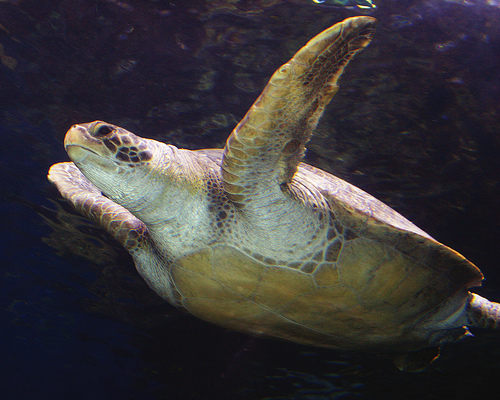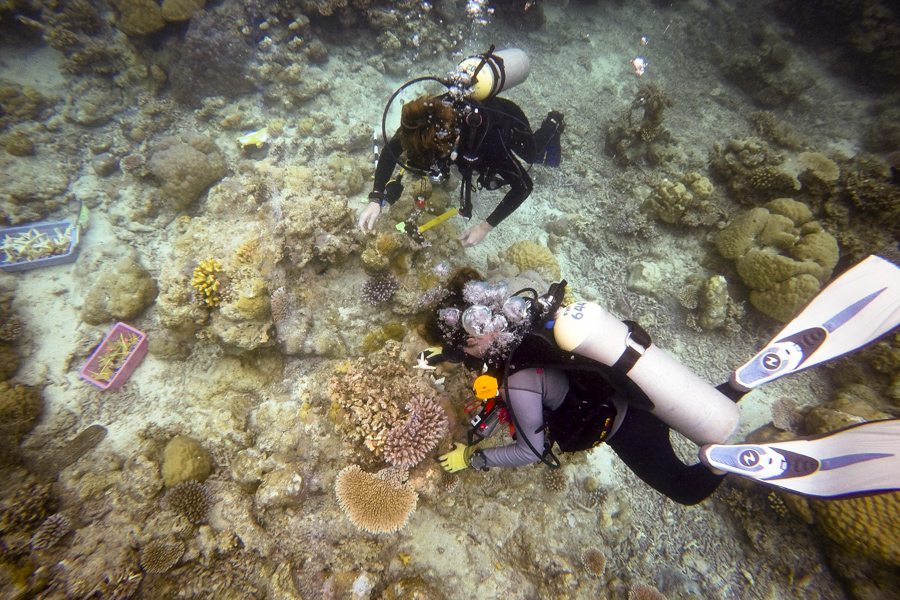Since 1999 the Aquarium has regularly provided AAUS-approved training in underwater data gathering techniques to qualified paid and volunteer divers. Upon successful completion of the training, divers are eligible to participate in specimen collection activities, research studies, and underwater activities that are part of the Aquarium’s community outreach. Some of these activities have included or currently include the following projects.
- Continental Thermograph Array Project
The Catalina Marine Society partners with the Aquarium of the Pacific Divers, dive clubs, ocean outreach non-profit organizations, and volunteer divers to construct and maintain an array of ocean temperature sensors along the mainland coast of Southern California. The project measures ocean temperatures continuously at various locations to depths of 20 meters. Data collected from this array supplement and complement data collected from similar temperature arrays located along the Northern and Southern Channel Islands. Temperature data are used to characterize abnormal conditions such as those associated with El Niño; discover locations of active internal wave activity; measure propagation of coastal fronts; and determine upwelling locations, frequencies, and amplitudes, including those associated with Santa Ana winds. Ultimately, these data will be used to investigate nutrient mixing in the Southern California Bight.
- Reef Check
As community scientists, volunteer Aquarium divers regularly conduct underwater observations using Reef Check monitoring protocols to assess the relative abundance and size distribution of a variety of species of fishes and invertebrates found in local waters. The information collected by our divers is added to a database that allows scientists to see how these populations are changing over time. Read the Training Course Outline.
- Assisting Graduate Researchers
Over the years our trained scientific divers have provided underwater data gathering assistance to numerous researchers and graduate students from universities such as the California State Universities Long Beach, Fullerton and Northridge; the University of Southern California; University of California at Los Angeles; and the University of California at Davis.
- Assisting Government Agencies
Scientific divers have participated in abalone population and habitat surveys with biologists from the California Department of Fish and Wildlife and have assisted with kelp monitoring for the National Park Service in the Channel Islands National Marine Sanctuary.


